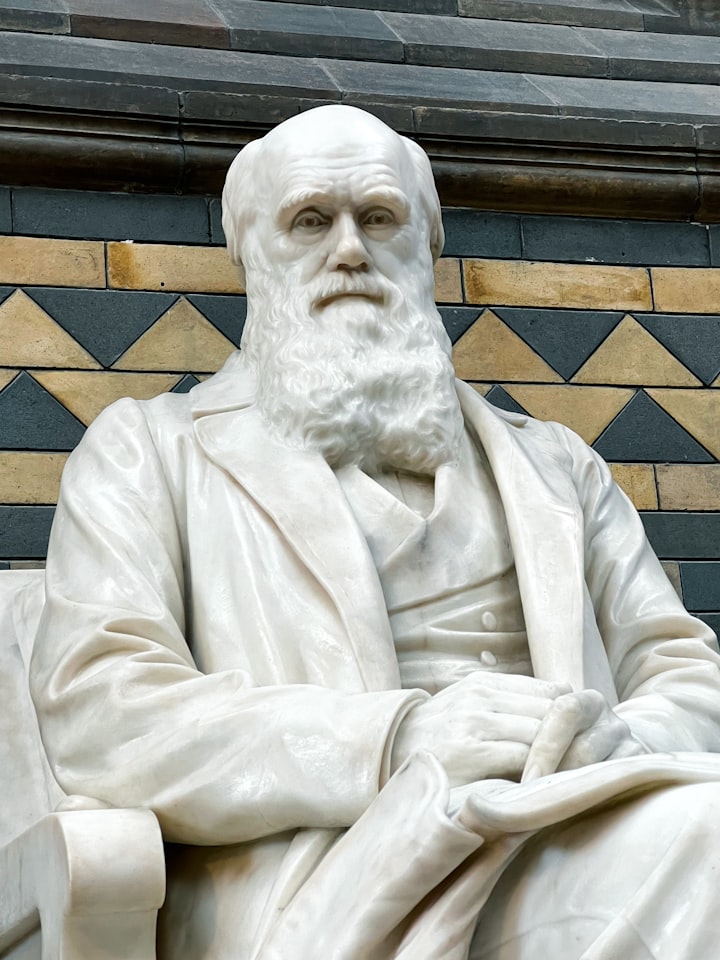Who was Charles Darwin?
A short summary of the life of Charles Darwin

Charles Darwin's name is connected with one of the most profound and transformational theories in the history of science: the theory of evolution by natural selection, which he developed in Shrewsbury, England, on February 12, 1809. His pioneering studies and insights into the process of biological transformation transformed our knowledge of life on Earth. In this essay, we will look at Charles Darwin's life, contributions, and lasting influence, the man who changed the way we think about the natural world.
Charles Robert Darwin was born into a family of physicians and academics, which fostered in him a great curiosity and passion for nature at a young age. Despite his father's wishes for him to become a physician, young Charles developed an interest in natural history. He attended the University of Edinburgh and then Christ's College, Cambridge, where he studied theology with the goal of becoming an Anglican minister.
Darwin's interest in natural history flourished during his stay at Cambridge. He became an avid specimen collector and a member of the Plinian Society, a group of naturalists with whom he had spirited conversations about the natural world. His participation in the HMS Beagle trip to South America and other countries in 1831 was a watershed moment in his life.
Darwin had wonderful opportunity to examine and gather specimens of various plant and animal species during his five-year voyage onboard the HMS Beagle. During this journey, he began to establish his beliefs about the variety of life and the processes that shape it.
Darwin was profoundly influenced by his views of the Galápagos Islands, particularly the unusual adaptations of the islands' finches and tortoises. He also discovered fossils of extinct creatures, such as the enormous ground sloth, which led him to consider the possibility of species evolution.
Charles Darwin began the difficult work of evaluating and cataloging his specimens upon his return to England in 1836. He also continues to improve his ideas about the mechanisms that underpin the diversity of life on Earth.
In 1859, Darwin released his seminal essay "On the Origin of Species by Means of Natural Selection." In this book, he proposed a revolutionary idea: that species evolve over time through a process he called "natural selection." He contended that individuals with beneficial qualities within a population are more likely to live and reproduce, passing on those traits to their offspring. This process results in the gradual alteration and adaption of species to their habitats through generations.
The publication of "On the Origin of Species" aroused great debate and controversy. It questioned accepted theological and scientific views while also laying the groundwork for the field of evolutionary biology. Darwin's theory, which remains a cornerstone of contemporary biology, offers a unified framework for comprehending the complexity and diversity of life.
Charles Darwin's scientific achievements extend far beyond his theory of natural selection. He made substantial contributions to geology, botany, and zoology, as well as writing several notable works such as "The Descent of Man" and "The Expression of Emotions in Man and Animals." His precise observations, detailed notebooks, and essays remain significant tools for researchers today.
Darwin's legacy has also influenced conservation. His research on the Galápagos Islands, as well as his worry about the influence of human activity on the environment, predicted modern conservation initiatives. He realized the delicate balance of ecosystems and the need of biodiversity preservation.
Charles Darwin's life and work mark a watershed moment in science history. His theory of evolution by natural selection transformed our knowledge of the natural world, questioning firmly held beliefs and redefining our perspective on the diversity of life on Earth. His legacy lives on in biology, geology, and conservation, and his ideas continue to inspire scientists, educators, and intellectuals around the world. Charles Darwin, the originator of evolutionary theory, is an icon of scientific inquiry and curiosity, reminding us of the ability of observation and reason to unravel the natural world's mysteries.
About the Creator
John Ammerlane
I love writing about historical figures and events, but also about trivia, geekiness and (weird) sillyness.






Comments (1)
Great work! Good!